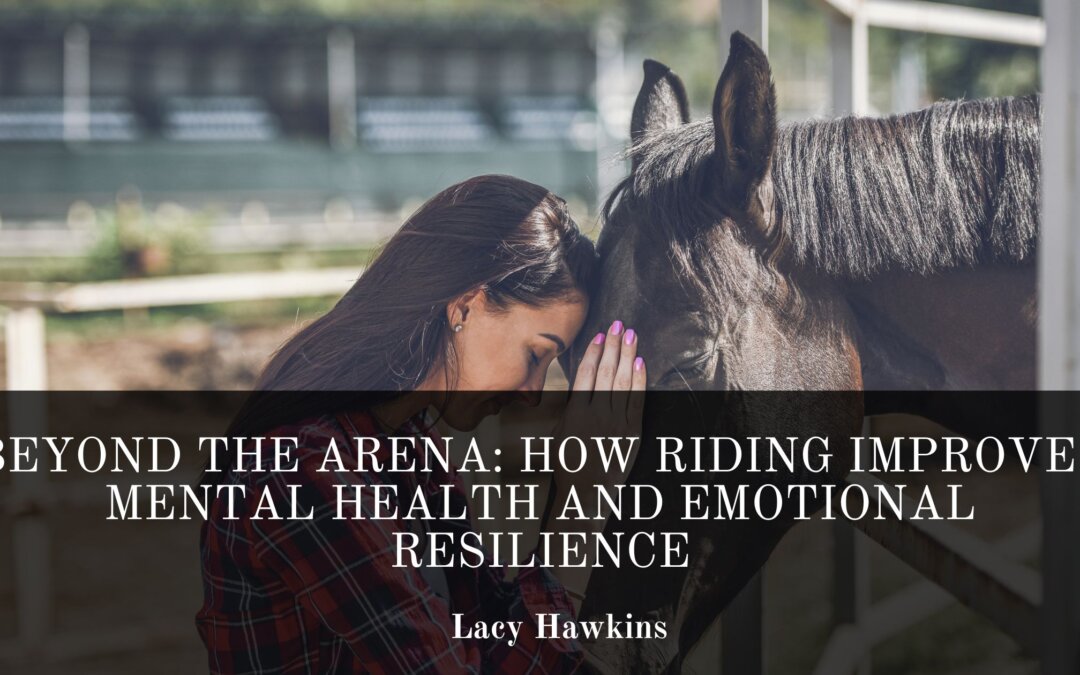Horseback riding is often associated with athleticism, discipline, and competition. But beyond the ribbons and routines, riding offers something even more powerful: mental clarity, emotional strength, and a deep sense of personal resilience. The barn becomes more than a training ground—it becomes a refuge and a place of emotional growth.
The Healing Power of Horses
Horses are intuitive creatures. They respond not just to physical cues, but also to the emotional state of their rider. When you approach a horse with stress or anxiety, it often reflects in the horse’s behavior. This immediate feedback teaches riders to manage their emotions, calm their energy, and build mindfulness in the moment.
Unlike humans, horses don’t judge or offer unsolicited opinions. They exist in the present. For many riders, especially those facing stress, grief, trauma, or mental health challenges, being around a horse provides a unique sense of grounding and emotional release.
Building Confidence Through Connection
Riding a horse requires trust—both in yourself and your equine partner. The simple act of guiding a 1,200-pound animal with gentle aids fosters confidence, responsibility, and leadership. As riders learn to connect and communicate effectively, they often discover a sense of self-assurance that spills over into their everyday lives.
Even on difficult days, the consistency of barn routines—grooming, feeding, mucking stalls—can provide structure and purpose. The relationship with a horse is built through daily acts of care, which can be incredibly healing for those struggling with depression or anxiety.
A Break from the Noise
In a world of constant digital stimulation, the barn offers something rare: stillness. Riding demands full presence—your attention can’t wander when you’re moving at a canter or navigating a jump course. This mental engagement acts like a reset button, helping riders let go of intrusive thoughts and return to the moment.
Many equestrians describe riding as a form of active meditation. The rhythm of the horse, the sound of hooves, the quiet focus—it all contributes to reduced stress and improved mental clarity.
Emotional Resilience in the Saddle
Riding also teaches resilience in a very real, practical way. You fall, you get back on. You have a tough lesson, you try again tomorrow. Horses don’t operate on our schedules or expectations, and they don’t always give instant results. Learning to cope with setbacks, frustrations, and progress that comes in inches rather than miles helps riders build emotional stamina.
Over time, this ability to persevere under pressure or adapt to change becomes part of who you are—not just as a rider, but as a person.
Conclusion
Horseback riding is far more than a sport. It’s a path to better mental health, deeper emotional awareness, and lasting resilience. Whether you’re working through life’s challenges or simply seeking balance in a busy world, the connection between horse and rider offers strength that extends well beyond the arena.
